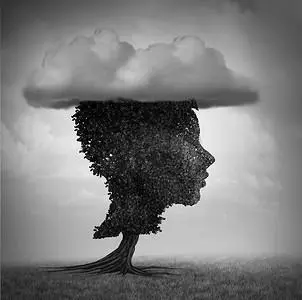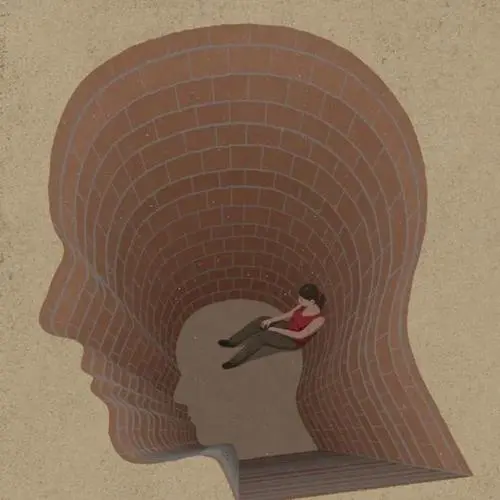In modern society, recognition has become an important criterion for judging the value and status of things. Whether in the academic circles, business fields, or daily life, people tend to distinguish between high and via recognition. The degree of recognition not only affects personal career development and social status, but also has a significant impact on the market performance of products and brands. So, what is recognition? What factors behind the recognition work work? What are the problems and thinking of people's pursuit of recognition?
The degree of recognition, in simple terms, is accepted and recognized by a person, things, or a brand by society or a group. This recognition can come from many factors, including but not limited to personal ability, product quality, brand reputation, etc. The formation of recognition often requires time accumulation and extensive dissemination. For example, the research results of a scholar will be quoted and discussed many times, and their recognition will naturally rise; a brand will also win higher recognition through continuous high -quality products and good customer services.

Affected factors of recognition
The standards of recognition may be very different in different social backgrounds and culture. In some cultures, personal family background and social relationships may be an important factor that affects recognition. In other cultures, personal professional ability and practical contribution may be more important. For example, in Chinese traditional culture, human connections and social status often have a profound impact on recognition; while in Western countries such as the United States, personal innovation ability and independent achievements may be more valued.
In today's information society, the impact of media and public opinion on recognition cannot be ignored. Media's publicity and reports can quickly increase the popularity and recognition of a person or brand. Especially today's highly developed social media, word of mouth and user evaluation on the Internet often directly affect product sales and brand image.
Personal ability and performance are one of the core factors that affect recognition. Whether in the workplace or academia, a person's professional knowledge, work ability, innovation ability, and teamwork spirit are directly related to its recognition. For example, an excellent programmer must not only have a solid programming skills, but also needs to have the ability to solve complex problems and experience in teamwork in order to gain high recognition in the industry.
For enterprises and brands, product quality and user experience are important factor affecting recognition. High -quality products and high -quality services can win the trust and praise of consumers, thereby increasing brand recognition. Conversely, inferior products and poor services can cause damage to the brand image and decline in recognition.

The influence of recognition on individuals and society
For individuals, recognition directly affects the opportunities and prospects of occupational development. A widely recognized professionals are more likely to get professional promotion and better job opportunities. For example, in the workplace, an employee recognized by colleagues and leaders is more likely to be committed to being promoted to get a chance to be promoted.
For enterprises and brands, recognition directly affects market performance and business success. High recognition brands often have stronger market competitiveness and higher customer loyalty. For example, through its innovative product design and high -quality user experience, Apple has won widespread recognition globally and has become the leader of the technology industry.
The degree of recognition not only affects the success of the material level, but also affects personal social identity and psychological happiness. The recognized people often have a higher self -esteem and a stronger sense of social belonging, and feel that their value is recognized and respected. For example, a widely recognized artist will not only get material returns, but also is widely praised by society for his artistic achievements, so as to gain psychological satisfaction and happiness.

Reflection of recognition
Although the degree of recognition is of great significance in many aspects, we also need to reflect on the possible problems that may bring about the expansion of recognition.
The pursuit of recognition often leads to fierce competition and huge psychological pressure. In the workplace, employees may not hesitate to work overtime in order to obtain recognition, leading to physical and mental exhaustion. In the academic world, researchers may ignore the practical significance and scientific ethics in order to publish papers of high -influential factor. For example, in recent years, the exposure of some academic fake events has reflected the negative impacts brought about by the improper pursuit of recognition.
Excessive pursuit of external recognition may lead to ignoring the internal value and hobbies of individuals. People may give up their true love for catering to the expectations of others, leading to career burnout and dissatisfaction with life. For example, a person who loves art may choose to become a lawyer because of the recognition of high -income occupations in society, but he feels extremely painful and dissatisfied.
In some cases, recognition may be false or manipulated. For example, in the business field, some companies create false recognition through advertising and marketing methods and mislead consumers. This not only harms the interests of consumers, but also destroys fair competition in the market.

How to correctly treat recognition
While pursuing recognition, we should balance internal and external needs and focus on internal value and personal interests. Only in the areas of truly love and interest can we gain lasting motivation and sense of accomplishment. For example, a person who loves writing should adhere to his interest and pursue inner satisfaction, rather than blindly pursuing external recognition and fame and fortune.
The society should establish a diversified evaluation system, which not only pays attention to external recognition, but also pays attention to the inherent value and actual contribution of individuals. For example, in the field of education, the evaluation standards should not be based on examination results and advancement rates, and they should also pay attention to the comprehensive quality and personality development of students.
We should cultivate a healthy mentality, treat recognition rationally, and do not blindly pursue. In the face of the pressure of recognition, you should learn to adjust and relax yourself to maintain a positive and optimistic attitude. For example, to relieve stress and maintain mental health by exercise and meditation.
In the end, recognition is only a way to achieve happiness and satisfaction, not the purpose itself. We should pursue true happiness and satisfaction to find our own meaning and value of life. For example, by engaged in your own love, establishing deep emotional connections with family and friends, and participating in social public welfare activities to achieve true happiness and satisfaction.

At the end
The degree of recognition plays a vital role in modern society, affecting personal career development, social status, and market performance of enterprises. However, excessive pursuit of recognition may lead to fierce competition, psychological pressure, and ignoring the internal value. Therefore, we need to look at the recognition with a rational attitude.
First of all, balanced internal and external demand is crucial. While pursuing external recognition, we should pay attention to internal value and personal interests, find the areas that truly love and be good at, and gain lasting motivation and sense of accomplishment. For example, a person who loves writing should adhere to his interest and pursue inner satisfaction, not just the recognition and fame and fortune of the outside world. Secondly, it is also important to establish a diversified evaluation system. Society should not only pay attention to external recognition, but also pay attention to the inherent value and actual contribution of individuals. For example, in the field of education, the evaluation standards should not be based on examination results and advancement rates, and they should also pay attention to the comprehensive quality and personality development of students.
In addition, the same key to cultivating a healthy mentality. We should take the recognition rationally without blind pursuit. In the face of the pressure of recognition, you should learn to adjust and relax yourself to maintain a positive and optimistic attitude. For example, to relieve stress and maintain mental health by exercise and meditation. In the end, recognition is only a way to achieve happiness and satisfaction, not the purpose itself. We should pursue real happiness and satisfaction to find our own meaning and value of life. Real happiness and satisfaction can be achieved by engaged in the career of love, establishing deep emotional connections with family and friends, and participating in social public welfare activities.
In short, rational pursuit of recognition and achieving internal and external balance can help us maintain their inner peace and satisfaction in the process of pursuing recognition, and find true happiness and value. It is hoped that readers can rationally pursue recognition in life and realize a more fulfilling and meaningful life.
图片来源于网络